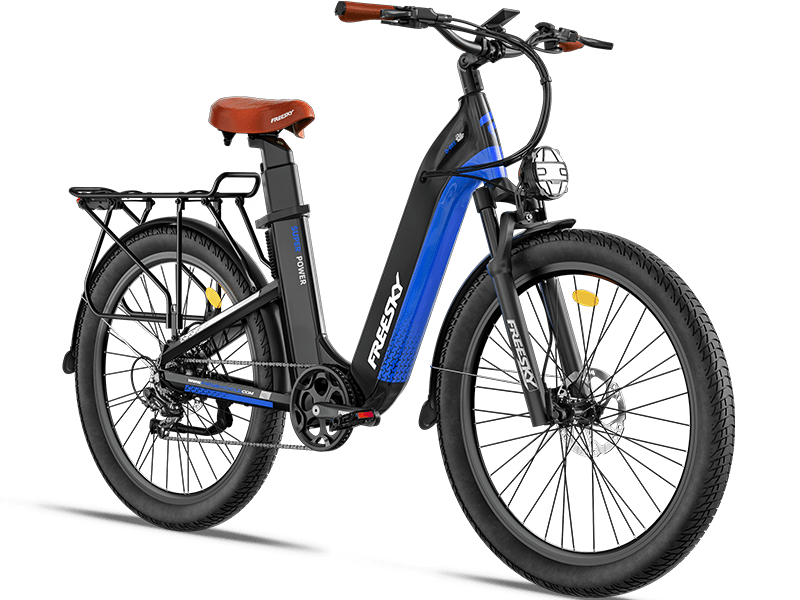The Rise of Electric Bikes Transforming Urban Mobility for a Sustainable Future
OCT 20, 2025
Electric bikes are reshaping the way we move through our cities. Combining efficiency, convenience, and eco-friendly design, they are not just a trend—they are a revolution in sustainable transportation. This article explores the benefits of e-bikes, the challenges of adoption, and the future of this fast-growing mobility solution.
Why Electric Bikes Are Becoming Essential
Across the globe, electric bikes are quickly gaining traction among commuters, outdoor enthusiasts, and eco-conscious individuals. These versatile vehicles seamlessly combine pedal power with motor assistance, making them suitable for city streets, suburban commutes, and weekend adventures alike.
The Versatility Factor
Imagine a bike that effortlessly adapts to your lifestyle: a reliable commuter during the week, a weekend companion for trail exploration, and a practical choice for running errands. Electric bikes offer this flexibility. Their motorized assistance allows riders to travel longer distances and navigate hills with ease, while still promoting an active, sustainable lifestyle.
Health and Lifestyle Benefits
E-bikes encourage daily physical activity without overexertion. Pedal-assist technology helps riders gradually increase fitness levels, making cycling accessible to all ages and abilities. By integrating exercise into daily routines, riders improve cardiovascular health, reduce stress, and enjoy more outdoor time—all while reducing reliance on cars.
Environmental Benefits of E-Bikes
Cutting Carbon Emissions
E-bikes are an environmentally friendly alternative to traditional vehicles. With zero tailpipe emissions and low energy consumption, they help reduce urban air pollution and greenhouse gases. Choosing an e-bike for commuting contributes to a cleaner city environment and promotes sustainable mobility practices.
Improving Urban Air Quality
Cities worldwide face growing challenges with air pollution. E-bikes provide a practical solution by easing traffic congestion and decreasing emissions. As their adoption increases, e-bikes contribute to cleaner air and healthier urban communities.
Financial and Health Advantages
Cost Savings
E-bikes offer significant financial benefits. Reduced fuel costs, lower maintenance expenses, and no parking fees make them an economical choice compared to cars or motorcycles. Over time, the savings can be substantial while simultaneously supporting environmentally responsible transportation.
Boosting Personal Well-being
Riding an e-bike promotes low-impact physical activity. By blending exercise with motor assistance, riders gain cardiovascular benefits, improved mood, and reduced stress. E-bikes also make cycling accessible for longer trips and challenging terrains, encouraging a more active and balanced lifestyle.
Tackling Barriers to E-Bike Adoption
Addressing Range Anxiety
Modern e-bikes feature high-capacity batteries and efficient power management, allowing riders to travel longer distances without fear of running out of power. Understanding battery capabilities and proper charging habits helps riders confidently plan extended trips.
Prioritizing Safety
Speed management, road sharing, and responsible riding are critical for safety. Wearing protective gear, following traffic laws, and maintaining the bike ensures safe and enjoyable journeys for all.
Supporting Infrastructure and Policy Measures
Infrastructure Development
Wider bike lanes, secure parking, and charging stations make e-bikes more practical and encourage adoption. Cities investing in e-bike-friendly infrastructure create safer, more convenient environments for riders.
Government Policies
Subsidies, tax incentives, and supportive regulations make e-bikes more accessible. Policies that integrate e-bikes into urban mobility plans help reduce congestion, improve air quality, and promote sustainable transportation.
The Future of Electric Bikes
Innovation in Technology
Advanced battery systems, faster charging, GPS tracking, and AI-assisted features are shaping the next generation of e-bikes. Future models may automatically adjust power levels based on terrain and rider behavior, providing an even smarter, more personalized riding experience.
Mainstream Adoption
As technology improves and infrastructure expands, e-bikes are becoming a practical alternative to cars and public transit. They offer a sustainable, cost-effective, and healthy transportation option for cities worldwide.
Conclusion
Electric bikes are more than a modern convenience—they are a pathway to sustainable, active, and efficient urban mobility. By combining environmental responsibility with health and lifestyle benefits, e-bikes represent a transformative solution for today’s cities.
Embrace the e-bike revolution and join a movement that reduces carbon emissions, promotes active living, and delivers endless adventures. The future of urban transportation is electric—and it’s already here.





























